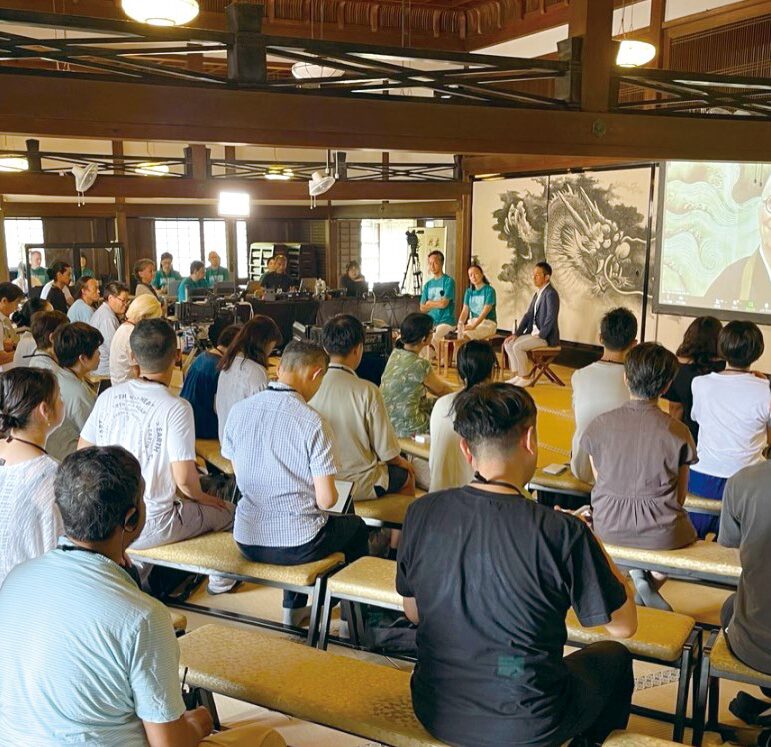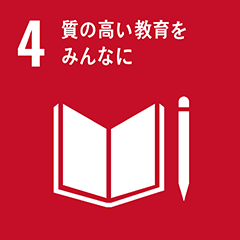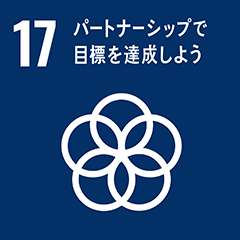Inochi Declaration
To cultivate our capacity to truly feel Inochi in contemporary society, we propose to expand spaces for Zen and mindfulness practices, while advancing international conferences, education, research, and community collaboration.
In today’s world, the value of Inochi is increasingly reduced to economic and material terms. This trend is rooted in modern ideals that emphasize efficiency and productivity, often treating individuals as isolated entities while neglecting their interconnectedness with nature and others. Precisely because we live in such an era, we need a deeper and more holistic perspective on Inochi. In this context, the teachings of Zen*1 and mindfulness*2 are attracting renewed attention. As AI continues to take on greater roles in daily life, research, and industry, it is vital for us to remain human and stay attuned to the richness of Inochi. While AI enhances efficiency, excessive digital dependence can lead to mental distraction and stress. Zen and mindfulness offer important counterbalances, helping us face ourselves and cherish moments of Inochi even in digital society.
Since 2017, the international conference “Zen2.0” has been held annually at a Zen temple in Kamakura. The event features lectures and dialogues by Zen masters, mindfulness experts, AI and artificial life researchers, as well as cultural experiences such as zazen meditation, tea ceremony, shakuhachi flute, and calligraphy. These experiences allow participants to engage mindfully with their minds and bodies. Through these efforts, Zen and mindfulness have been introduced to corporate culture, education, and local communities.
As of 2024, Zen2.0 has welcomed 219 speakers from Japan and abroad, engaged 559 volunteers, received support from 105 sponsoring companies, and reached a cumulative total of 4,600 participants. Kamakura—a city rich in history—has served as a model community where people can experience Inochi and is now gaining international recognition as “Mindful City Kamakura.” Zen2.0 also maintains partnerships with countries such as the United States, the United Kingdom, France, Italy, the Netherlands, Lithuania, and South Africa to globally expand Zen and mindfulness initiatives.
The Inochi Forum supports the continued hosting of Zen2.0 at Zen temples in Kamakura and contributes to the realization of a compassionate and Inochi-centered “Mindful City Kamakura.” Furthermore, it works to promote the expansion of these initiatives to new regions both in Japan and abroad,as well as their implementation in society, with the aim of creating a Mindful Planet. Specifically, the Inochi Forum and Zen2.0 jointly support the following three initiatives:

International Zen and Mindfulness Conference “Zen2.0”
1.Introducing Programs in Schools and Corporate Training
Through collaborations with initiatives such as IDGs (Inner Development Goals) and the Keio University Contemplative Studies Center, we offer opportunities for educators, students, and corporate professionals to explore the essence of Inochi. These programs provide experiential learning of Zen and mindfulness, encouraging deep insight into the value of Inochi.
2.Promoting Interdisciplinary Research in Japan and Abroad
In partnership with Zen2.0 speakers and others, we foster interdisciplinary research that integrates Zen and mindfulness philosophy with fields such as medicine, psychology, environmental studies, sociology, economics, artificial intelligence, artificial life, and physics. This research aims to deepen our collective understanding of Inochi.
3.Collaborating with Local Communities
We aim to share insights about Inochi with local communities through Zen and mindfulness practices. Community workshops and zazen sessions will offer residents opportunities to learn about Inochi together, fostering cross-regional collaboration within Japan and internationally.
The Inochi Forum will collaborate with diverse organizations and advance interdisciplinary research and applied practices that explore the nature of human consciousness and spirituality.
[Notes]
*1 Zen: Originating in Buddhism, Zen emphasizes awareness of the present moment and the pursuit of self-realization through meditation. It is deeply rooted in Japanese culture, influencing arts such as tea ceremony and calligraphy, and embodying values of harmony and tranquility.
*2 Mindfulness: Derived from Buddhist meditation practices,
mindfulness cultivates awareness of the present. It has been shown to reduce stress, improve focus, and nurture compassion for oneself and others.
[References]
・International Zen and Mindfulness Conference “Zen2.0”
https://www.zen20.jp/
[Action Platform]
Arts, Culture and Sports
[SDGs]




